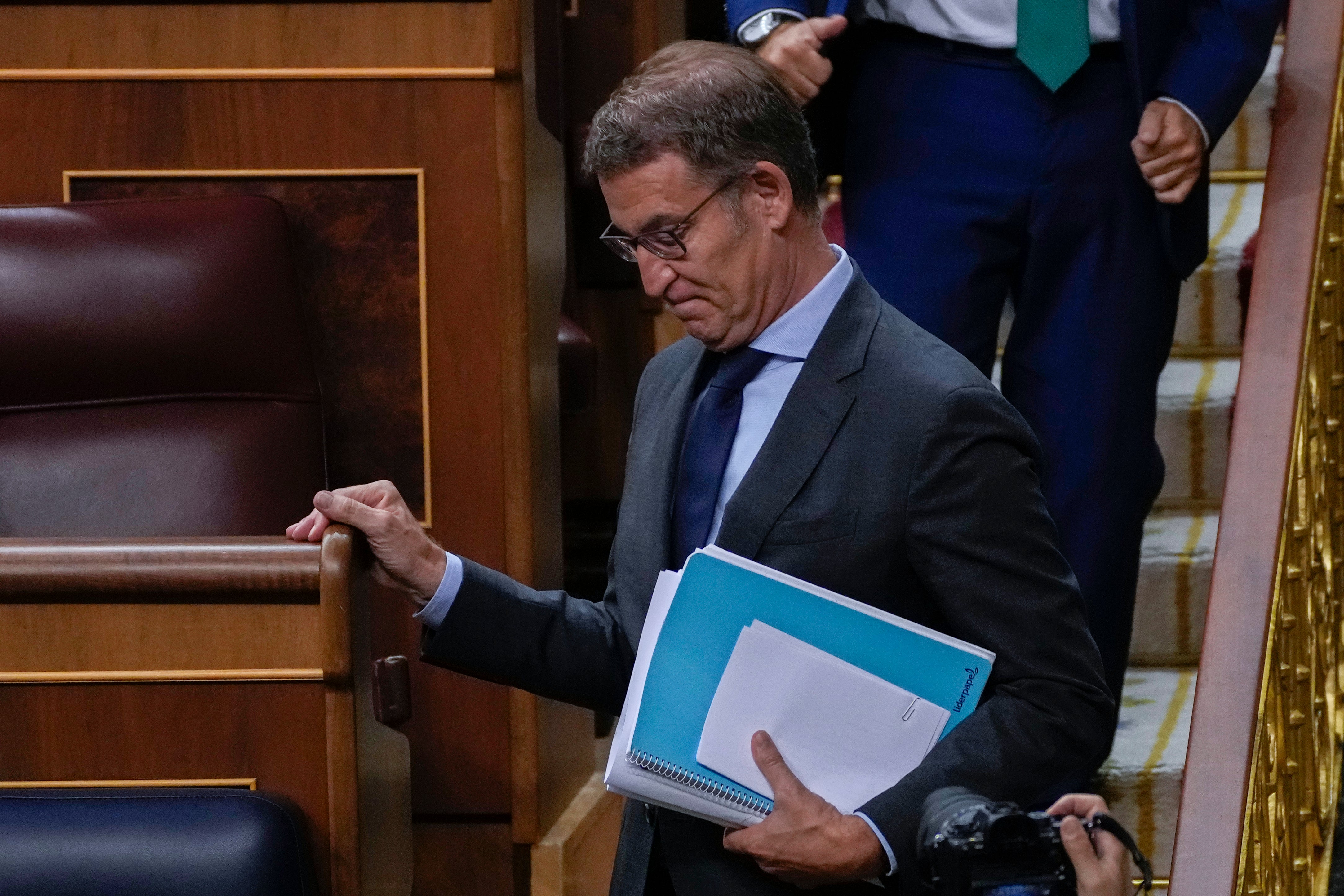The leader of Spain's conservatives makes a 2nd bid to become prime minister
The leader of Spain’s conservatives is trying for the second time in three days to get parliamentary support for his bid to become prime minister

Your support helps us to tell the story
From reproductive rights to climate change to Big Tech, The Independent is on the ground when the story is developing. Whether it's investigating the financials of Elon Musk's pro-Trump PAC or producing our latest documentary, 'The A Word', which shines a light on the American women fighting for reproductive rights, we know how important it is to parse out the facts from the messaging.
At such a critical moment in US history, we need reporters on the ground. Your donation allows us to keep sending journalists to speak to both sides of the story.
The Independent is trusted by Americans across the entire political spectrum. And unlike many other quality news outlets, we choose not to lock Americans out of our reporting and analysis with paywalls. We believe quality journalism should be available to everyone, paid for by those who can afford it.
Your support makes all the difference.The leader of Spain’s conservatives tried for the second time in three days to get parliamentary support for his bid to become prime minister following his party's victory in a national election.
However, Popular Party leader Alberto Núñez Feijóo 's efforts Friday appeared doomed as he still lacked the votes from lawmakers he needs to form a government.
If Feijóo again comes up short as expected, it would open a door for center-left Socialist leader Pedro Sánchez to possibly return to power if he can persuade smaller parties to back him.
Unlike in Wednesday’s ballot of lawmakers, when Feijóo needed an absolute majority of 176 votes, the bar on Friday is lower. He needs only more “yes” than “no” votes from the 350 lawmakers in the Madrid-based Congress of the Deputies, the Spanish parliament's lower chamber.
Even so, with no opposition lawmakers apparently ready to break ranks, he was set to collect the same 172 votes in his favor to 178 against him that he received two days earlier.
The Popular Party holds 137 seats in the Congress of Deputies, the most of any party. But even with backing from the far-right Vox party's 33 lawmakers and two from small conservative rivals, that is still not enough for Feijóo.
Spain’s July election produced a splintered parliament made up of legislators from 11 parties, making the path to power difficult for any one of them.
Under the Spanish Constitution, Feijóo’s failure to find parliamentary support would mean that acting prime minister Sánchez, whose Socialists placed second in the election, gets a chance to form a government.
Sánchez has been Spain’s prime minister for the past five years, delivering bold policies in such areas as women’s rights and climate change. He called July’s snap election after his party had a poor showing in local and regional elections.
To secure another term, the 51-year-old needs to persuade lawmakers from leftist, regionalist and separatist parties to support him. Negotiations on that possibility have taken place for weeks.
If no government is in place by Nov. 27, another national election will be held on Jan. 14.